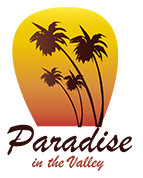Group outings offer a wealth of benefits for seniors, particularly when it comes to enhancing mental health and fostering social connections. As we age, staying mentally active and socially engaged becomes more crucial for overall well-being. These outings not only provide a much-needed change of scenery but also help seniors stay active, build friendships, and combat the risks associated with loneliness and isolation. In this article, we’ll explore how group outings contribute to better mental health and stronger social connections in seniors.
1. Combatting Loneliness and Isolation
Loneliness is a significant concern for many older adults. According to the National Institute on Aging, social isolation and loneliness can lead to a variety of mental health issues, such as depression, anxiety, and cognitive decline. Group outings present a wonderful opportunity for seniors to step outside of their homes and engage with others. Whether it’s a day trip to a local museum, a scenic park walk, or a trip to a theater, these activities provide valuable opportunities for seniors to socialize, engage in meaningful conversations, and build relationships with others.
By participating in group outings, seniors can reduce feelings of isolation and replace them with a sense of belonging and connection to the community. The shared experience of an outing creates natural conversation starters, making it easier for seniors to engage with others and form new friendships.
2. Improved Cognitive Health
Group outings provide opportunities for mental stimulation, which is crucial for maintaining cognitive health in seniors. Activities like visiting museums, attending concerts, or exploring historical sites offer seniors the chance to learn new things, challenge their memory, and engage in discussions that stimulate the brain. These experiences can be highly beneficial in maintaining cognitive function, preventing cognitive decline, and even promoting neuroplasticity – the brain’s ability to adapt and form new connections.
Social interaction during these outings is just as important for cognitive health. Engaging with peers during these events helps seniors practice their communication skills, recall shared memories, and stay mentally sharp. Having a conversation about a specific topic or reflecting on a recent outing also encourages critical thinking, problem-solving, and memory recall, all of which contribute to cognitive well-being.
3. Reducing Stress and Boosting Mood
Socializing with others during group outings helps seniors feel less stressed and anxious. Being part of a group allows seniors to experience shared joy and laughter, both of which trigger the release of endorphins, the brain’s “feel-good” chemicals. These natural mood boosters can alleviate feelings of sadness, depression, and anxiety, creating a sense of happiness and fulfillment.
Additionally, exposure to nature and outdoor environments during group outings has been linked to improved mental health. Spending time in parks, gardens, or on nature walks helps reduce cortisol levels, which are often elevated due to stress. A calm, natural setting can foster relaxation, allowing seniors to feel more at ease and improve their overall sense of well-being.
4. Fostering a Sense of Purpose and Accomplishment
Group outings can give seniors a sense of purpose and accomplishment. When planning or participating in a group outing, seniors feel they are contributing to the experience and participating in something meaningful. These activities also give seniors the chance to try new things, set goals (such as completing a hike or learning about a new subject), and feel a sense of achievement when they accomplish those goals.
For many seniors, having something to look forward to can make a big difference in their mental health. Regular outings provide a sense of routine and anticipation, which can break up the monotony of daily life. The ability to look ahead to a fun and engaging activity can significantly boost morale and motivate seniors to stay active and engaged.
5. Strengthening Social Bonds and Building New Friendships
Group outings are an ideal environment for seniors to meet new people and form lasting friendships. In many cases, seniors may find themselves reconnecting with old friends or bonding with new people who share similar interests. These outings provide an opportunity for individuals to interact in a low-pressure, relaxed setting where conversations can flow naturally.
Building social bonds in this way can be incredibly rewarding. Engaging in group activities allows seniors to create deeper connections with their peers, reducing the sense of loneliness and helping them feel more connected to their social circle. Strong friendships developed during group outings offer emotional support and a safety net during difficult times, further enhancing seniors’ mental well-being.
6. Encouraging Physical Activity
Physical activity plays a vital role in mental health. When seniors participate in group outings that involve walking, hiking, or light exercise, they not only improve their physical health but also support their mental health. Exercise releases endorphins, which reduce stress and boost mood. Regular physical activity can also reduce symptoms of depression and anxiety.
Even for seniors with mobility issues, there are group outing options that encourage gentle movement, such as yoga in the park, slow-paced walking tours, or seated exercises. The sense of accomplishment and satisfaction that comes from physical activity – no matter how minimal – contributes positively to a senior’s mental health.
7. Providing Emotional Support
Group outings offer a valuable source of emotional support for seniors. Being part of a group means having access to others who understand what they may be going through. Seniors often share experiences, offer advice, and provide a listening ear to one another, fostering a sense of mutual understanding and camaraderie.
This type of emotional support can help seniors navigate challenging times and improve their overall mental health. Whether it’s dealing with grief, adjusting to retirement, or managing health conditions, knowing that there is a supportive group to lean on can make a world of difference in a senior’s emotional well-being.


